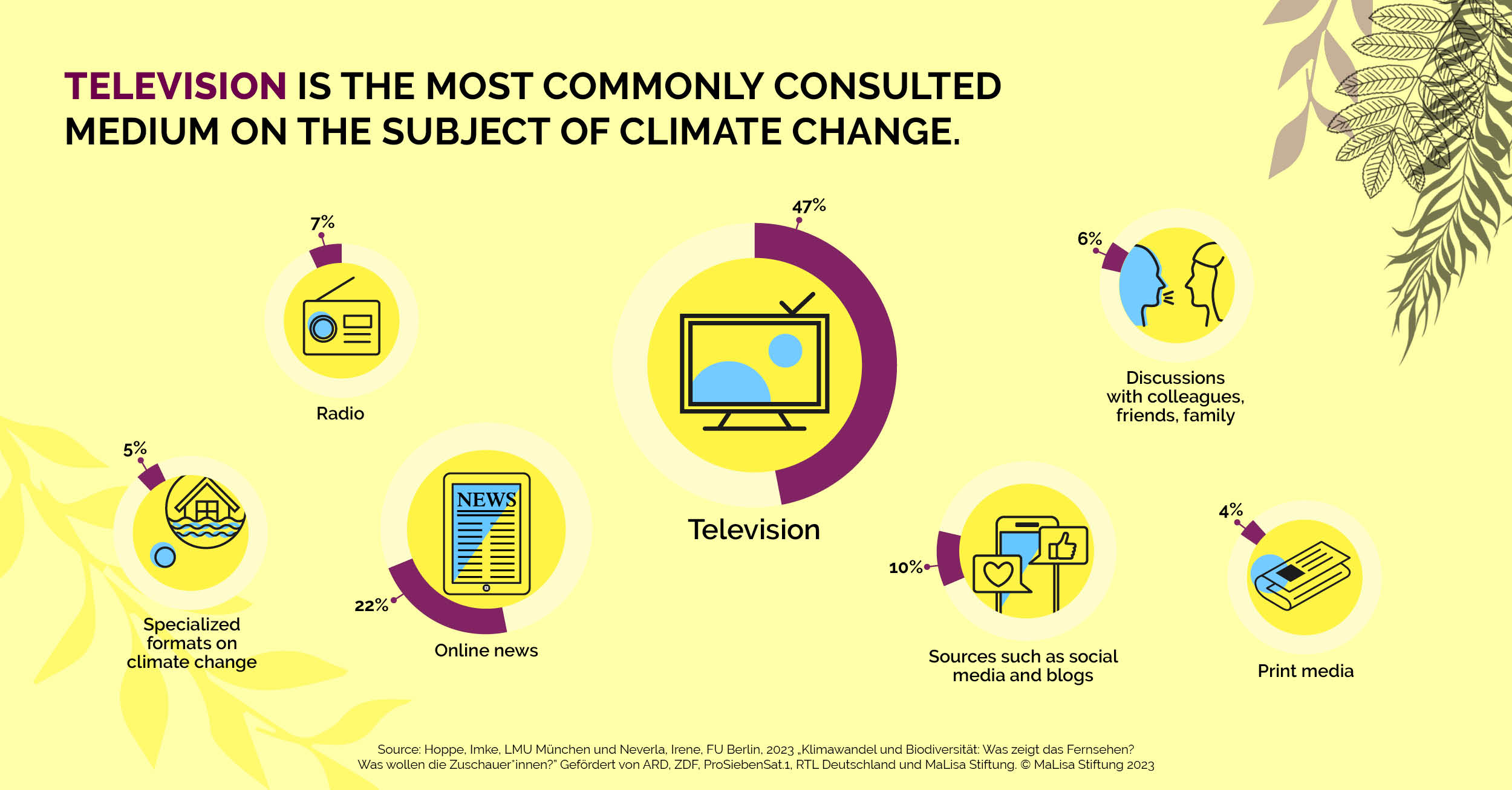STUDY PUBLISHED ON CLIMATE CHANGE AND BIODIVERSITY

How we, as a society, talk about climate change and endangered species is strongly influenced by media coverage – above all by television reporting.
But how do viewers in Germany perceive the programs offered? How strong is the demand for information? What does the audience want?
The study, “Climate Change and Biodiversity: What does television show – what do viewers want?”, initiated by the MaLisa Foundation and the four major television stations, is dedicated to these questions.
The study was conceived and led by Prof. Dr. Irene Neverla, FU Berlin, and Prof. Dr. Imke Hoppe, LMU Munich, in cooperation with the Fraunhofer Institute for Digital Media Technology IDMT.
On the results:
Viewers would like to see more coverage of climate change and biodiversity in the core program and clearly defined time slots. Over half of respondents say that extreme weather events have changed their perception of climate change.
In the television programs analyzed, the visibility of women is significantly lower compared to the visibility of men: In the period under review, the proportion of female faces was 35%, compared to 65% male faces. The television presence within the field of climate change shows a very similar ratio (34% women compared to 66% men).
For the program analysis, the programs on 20 German television stations were examined in the period September 1, 2022 – October 31, 2022 (19h/day).
The analysis also shows that viewers perceive biodiversity as barely present on television. Users perceive the subject of climate change to be much more present. In fact, the relative share of climate change is only 1.8% of total airtime minutes, while the share of biodiversity is only 0.2%.
“My daughter and I felt it was extremely important to initiate and support this study,” says Maria Furtwängler, co-founder of the MaLisa Foundation. “It makes it clear that the loss of biodiversity is a marginalized issue on television. Yet, this is about the very foundations of our lives, such as fertile soil, clean water, and breathable air, and therefore it concerns all areas of life from the economy and health to entertainment. There are great opportunities to find good stories about climate and species protection and new formal approaches and interpretations.”
Elisabeth Furtwängler: “Is the climate crisis one ‘issue’ among many others – or isn’t it a reality that surrounds and threatens us all? And what next steps in climate communication are conceivable to best inform us and inspire us to act? I am confident that our study will contribute to answering these questions.”
Presentation of results with partner organizations and experts in Munich
The results of the study, “What does television show – what do viewers want?” were presented and discussed on the day before the opening of the Medientage München (Munich Media Days). A focus of the discussion was on the largely untapped potential of fictional formats, children’s and youth television, as well as quiz and show formats.
Discussion participants included ARD Chairperson Kai Gniffke, Dr. Florian Kumb, Head of Program Planning at ZDF, Henrik Pabst, Managing Director of the Seven.One Entertainment Group, and Mirijam Trunk, Chief Crossmedia Officer and Chief Sustainability & Diversity Officer at RTL, as well as editorial managers from various programming departments at the respective broadcasters.
In the second part, experts and guests from the film and television industry offered ideas concerning their respective formats and fields of activity, including Eckart von Hirschhausen, Samira El Ouassil, Annette Hess, Lars Jessen, Marie Nasemann, Florian David Fitz, and many more.
Yasmine M’Barek (DIE ZEIT) and Maik Meuser (RTL) moderated the event.The page on the study, “Climate Change and Biodiversity: What does television show – what do viewers want?”, features infographics and key findings of the study.
